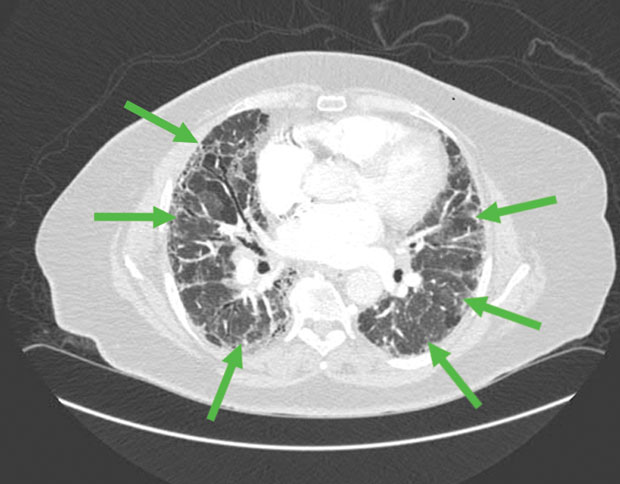
Easing away from antibiotics for CAP
Physicians may want to consider holding off on prescribing antibiotics for lower-risk patients with viral pneumonia, according to a recently published American Thoracic Society guideline.
Changes coming to ACP news publications
I.M. Matters from ACP will become an online publication exclusive to ACP members in January 2026. Read the Editor's Note to learn more.

Physicians may want to consider holding off on prescribing antibiotics for lower-risk patients with viral pneumonia, according to a recently published American Thoracic Society guideline.

More than 50% of prescriptions for restless leg syndrome are written by primary care physicians, yet many clinicians may be unaware of the risks of traditional therapies. An updated guideline could help.
Providing quality care and enjoying and embracing the value of internal medicine will give physicians career fulfillment.
A columnist engages in an exercise in gratitude during difficult times.

A safety-net hospital expanded its preexposure prophylaxis (PrEP) program to include both oral and long-acting injectable medications.

Experts delved deeper into the obstacles to starting a family for early career physicians.
A physical exam can save the need for an echocardiogram, an expert says.
This column reviews recent recalls, alerts, and approvals.
The Governance Committee of the American College of Physicians places in nomination candidates for College governance.
Test your knowledge in this month's superlative medical crossword puzzle.
A 58-year-old man is evaluated for a 3-month history of progressively worsening shortness of breath and dry cough. Following a physical exam and pulmonary function tests, what is the most appropriate step in management?


I.M. Matters' final issue published both in print and online addresses community-acquired pneumonia guidelines and restless legs syndrome.
ACP Spotlight offers readers a look at ACP's current top priorities and initiatives, as well as highlights from our e-newsletter, I.M. Matters Weekly from ACP.